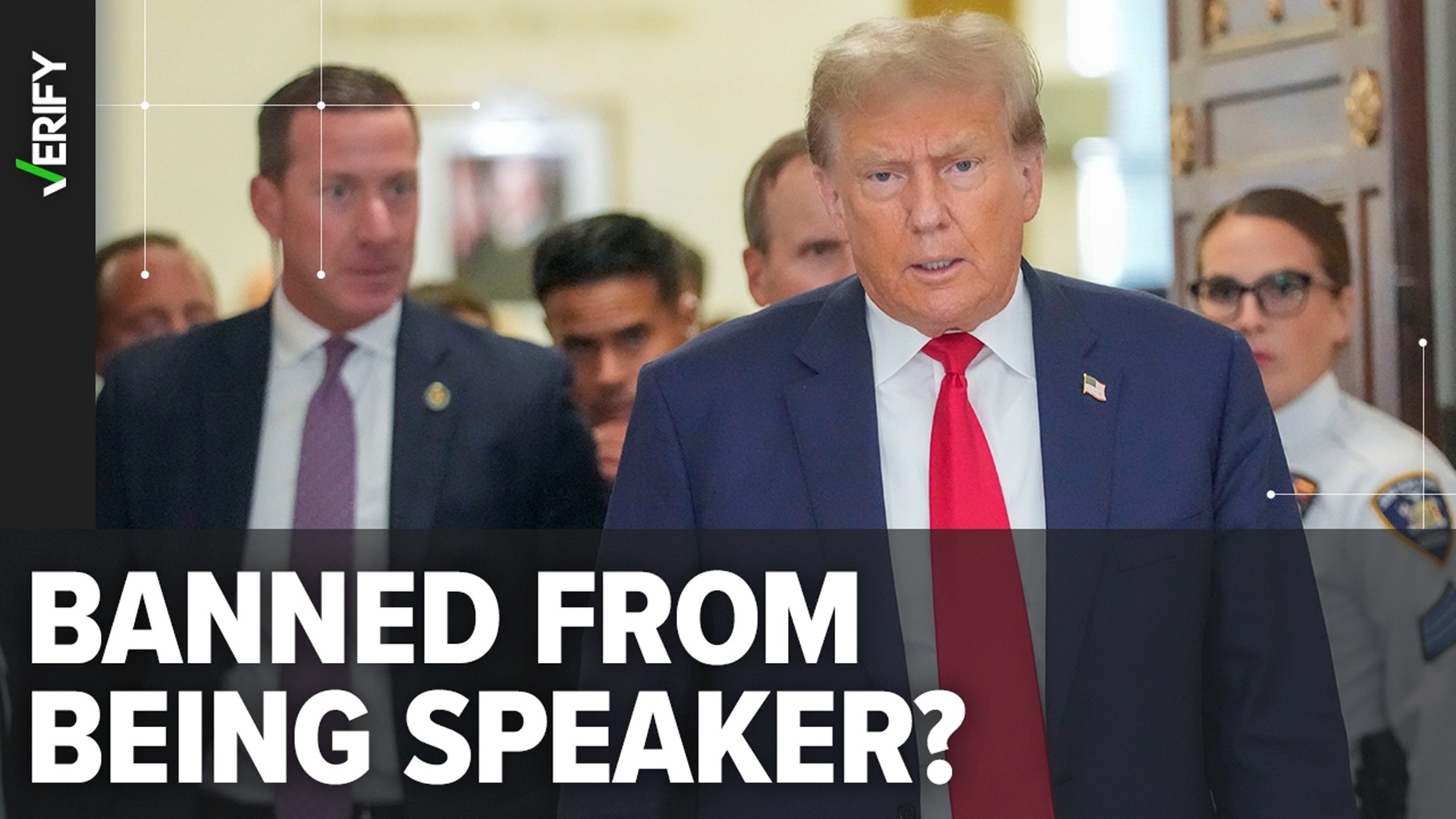On Oct. 3, Rep. Kevin McCarthy (R-Calif.) became the first House speaker in U.S. history to be ousted from the position.
Since he was stripped of the gavel, several House Republicans have suggested Former President Donald Trump could become speaker, since the role doesn’t have to be filled by a current member of the House of Representatives.
Rep. Troy Nehls (R-Texas) said in a post on X that he nominates Trump for the role. Rep. Marjorie Taylor Greene (R-Ga.) also said she would support Trump.
But some people claimed Trump’s legal challenges disqualify him.
After Trump’s name was floated as being on the short list for nomination, “Rule 26” was trending on X and Google, with claims he actually can’t be speaker because he’s under indictment.
THE QUESTION
Is it against House rules for someone under indictment to be Speaker?
THE SOURCES
- Rules of the House of the Representatives, 118th Congress
- House GOP conference rules of the 118th Congress
- Democratic caucus rules for the 118th Congress
- Nicholas Creel, assistant professor of business law and constitutional law expert at Georgia College and State University
THE ANSWER
Yes, the GOP has Rule 26(a) and the Democrats have Rule 4, both of which say the speaker can’t hold the seat while under indictment. However, these rules aren’t legally binding and aren’t always followed.
WHAT WE FOUND
Each party adopts its own set of rules at the start of each Congressional session. The GOP’s conference rule, House Rule 26(a), and the Democratic party’s caucus rule, Rule 4, each have the same rules about holding a leadership position while under indictment.
They both say a member who has been indicted for a felony that could carry a sentence of two or more years imprisonment needs to vacate their position.
The House also has rules for all members in its code of conduct that say the same thing.
Rule 13 in section 10-B reads: “A member who has been indicted for a felony for which a sentence of two or more years’ imprisonment may be imposed should resign from any committees … and should step aside from any party caucus or conference leadership position.”
Trump’s four indictments include numerous felony charges that carry sentences of two years or longer.
But there is an important caveat to point out.
House rules aren’t like laws – they don’t come with the weight of a court; they are self-imposed and self-enforced by the House.
Violations of House rules can be investigated by the Ethics Committee, but that committee doesn’t have much power beyond issuing warning letters and sometimes fines.
More severe disciplinary actions can be taken by the House after review from the Ethics Committee, according to the Congressional Research Service.
Those actions are:
- Removal: A supermajority of at least two-thirds of the House must vote to remove a seated congressperson.
- Censure: A formal statement of disapproval which requires a formal, majority vote.
- Reprimand: Another statement of disapproval, but is less serious than a censure. A reprimand also requires a formal vote by a majority in the House.
So, while we can VERIFY there are rules against a person under indictment holding the speakership, those rules can be ignored or changed.
In the case of Trump, if a majority of representatives vote to install him as speaker, he would be violating the current house rules, according to Nicholas Creel, assistant professor of business law and constitutional law expert at Georgia College and State University.
“The rule would apply to Trump as he would be a member of House leadership in the event he were to be elected to the Speakership. At that point, he would then be serving in violation of Republican conference rules as he is already under a felony indictment in four different jurisdictions,” Creel told VERIFY.
However, that same majority is unlikely to turn around and vote to expel Trump for violating House rules, and could even vote to change the rules.
When asked about being speaker, Trump told reporters at a New York courthouse on Oct. 4 that he will “do whatever it is to help” Republicans in the speakership race, but that he is focused “totally” on his presidential campaign.
“If I can help them during the process, I would do it. But we have some great people in the Republican Party that could do a great job as speaker,” he said.

